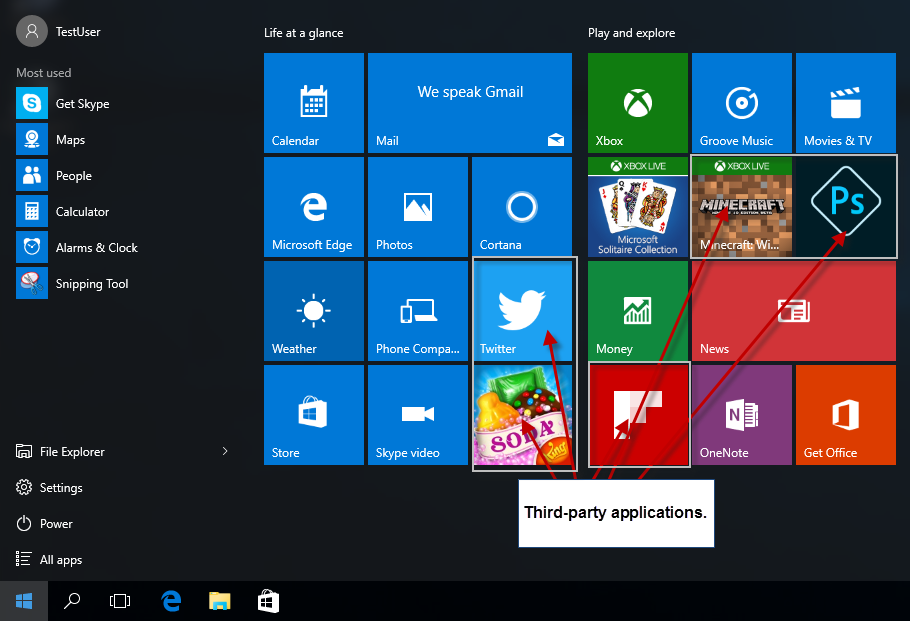Windows 10 Anniversary Update brings more promoted apps
When Microsoft launched Windows 10, it did so mostly with company created applications. These applications, from Mail and Photos to obscure apps like 3D Builder were all listed under all apps in the start menu, and many of them were also highlighted in the start menu as tiles as well.
Next to that were five promoted applications which, except for Minecraft, had no ties to Microsoft and were produced by other companies.
The apps in question were Twitter, Flipbook, Photoshop Express, Minecraft and Candy Crush Soda Saga.
Only Candy Crush Soda Saga came installed while the remaining apps linked to Windows Store where the app or game could be downloaded from.

The default start menu layout and application composition is created for every new user account on a Windows 10 system, even on systems running Pro and Enterprise editions.
The main reason why Microsoft highlights promoted apps in the start menu is to introduce users of the operating system to apps and Windows Store.
It is easy enough to remove those applications from the system by right-clicking on tiles and selecting the uninstall option that appears.
Only Candy Crush Soda Saga is uninstalled while the linked tiles are removed immediately from the start menu instead.
Administrators who do not want promoted applications to be displayed on systems they manage can disable the Microsoft Consumer Experience.
While that option will remain when Microsoft launches the Windows 10 Anniversary Update in July 2016, promoted applications will be doubled (PDF document link).
This means basically that users who install Windows 10 with the Anniversary Update anew, or upgrade their systems to that version of Windows 10 from an earlier version of Windows, will see 10 promoted apps in the start menu instead of just five.
Microsoft has not revealed yet which applications it will feature in the start menu, only that the count will be doubled and that tiles for Microsoft's own apps will be reduced from 17 to 12.
It is likely that the majority of promoted apps will be listed as links and not come pre-installed with the operating system. This is not only done to keep the installation size low, but also to direct users to Windows Store so that they are exposed to it.
Judging from the current selection of promoted applications, it seems likely that Microsoft will add apps like Facebook or Netflix showcased in the start menu of the next version of the Windows 10 operating system.
That's not necessarily a bad choice considering that these applications are very popular and probably more popular than some of the first party applications that Microsoft showcases currently on the start menu.
It depends largely on the type of apps though that Microsoft decides to showcase there.
Now You: If you use Windows 8 or 10, do you use apps?
This article was first seen on ComTek's "TekBits" Technology News

- Log in to post comments